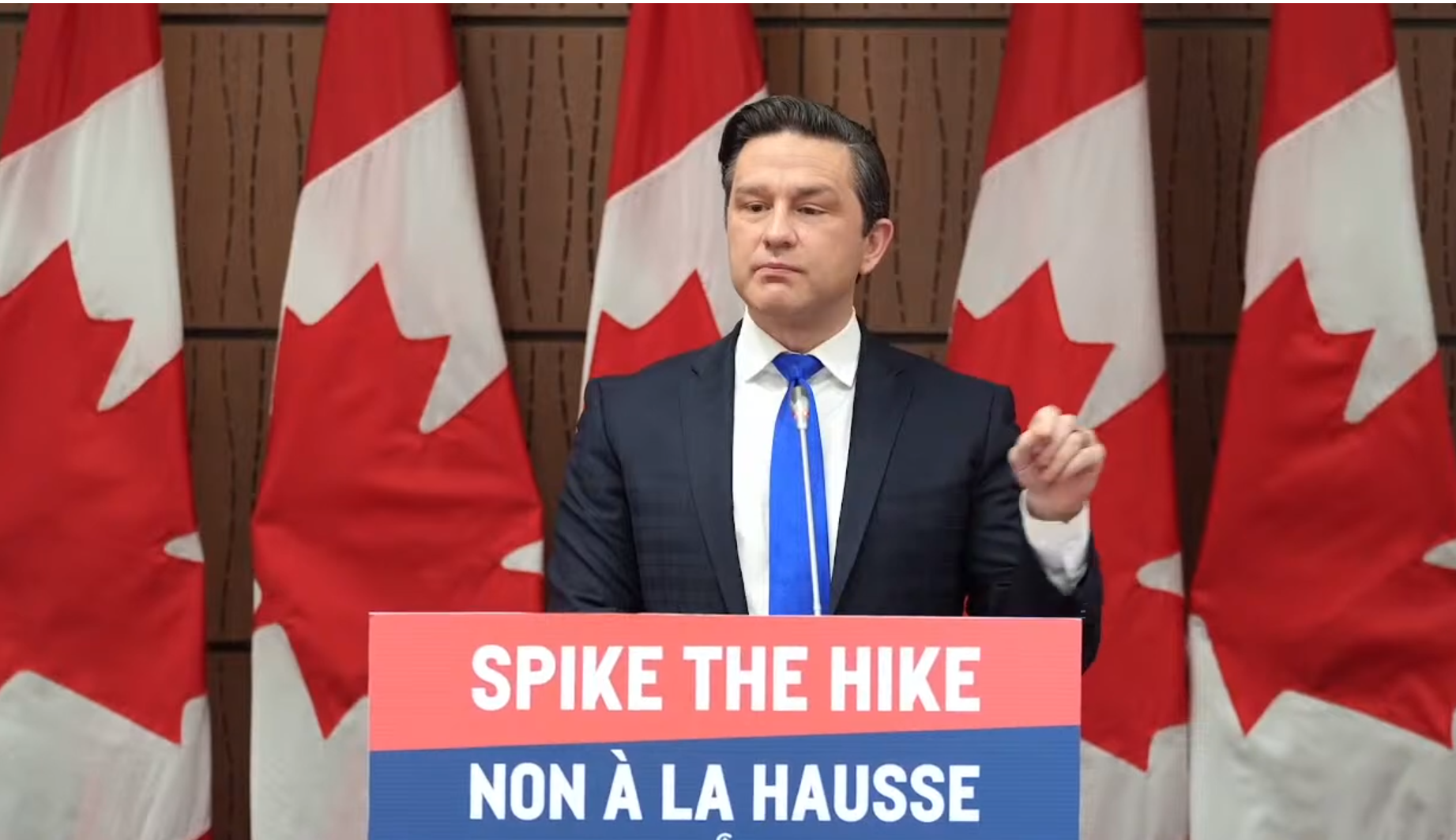Conservative Leader Pierre Poilievre addressed his party’s national caucus in Ottawa, unveiling plans to introduce a non-confidence motion in response to the government’s proposed increase of the federal carbon price on April 1, 2024. In his speech, Poilievre criticized the government’s economic policies and highlighted the hardships faced by Canadians, particularly regarding inflation, housing affordability, and food insecurity.
Poilievre shared anecdotes from his recent door-knocking efforts, including encounters with citizens struggling to cope with economic challenges. He emphasized the story of a 76-year-old retired trucker facing housing insecurity and financial strain, framing it as emblematic of broader issues under the current government.
The Conservative leader also addressed concerns about Canada’s economic performance, citing statistics that placed the country at the bottom of the G7 in terms of GDP per person. He expressed disappointment with the government’s handling of crime and public safety, citing increases in gang-related violence and car thefts.
However, Poilievre’s main focus was on the impending carbon tax hike, which he characterized as burdensome for Canadians already facing financial pressure. He disputed the effectiveness of carbon tax rebates, citing data from the Parliamentary Budget Officer to argue that many Canadians would pay more in taxes than they receive in rebates.
Poilievre addressed the role of the media, expressing concerns about what he perceived as biased reporting. He accused the media of perpetuating “dangerous disinformation” by failing to accurately convey the impact of government policies on Canadians’ lives.
Poilievre concluded his speech by announcing his intention to table a motion of non-confidence in the Prime Minister, citing the carbon tax hike as evidence of the government’s failure to address the concerns of Canadians. He outlined his party’s alternative vision, promising to prioritize affordability, fiscal responsibility, and public safety.
As the political landscape continues to evolve, Canadians will closely watch the outcome of this debate and its implications for the country’s economic future.

